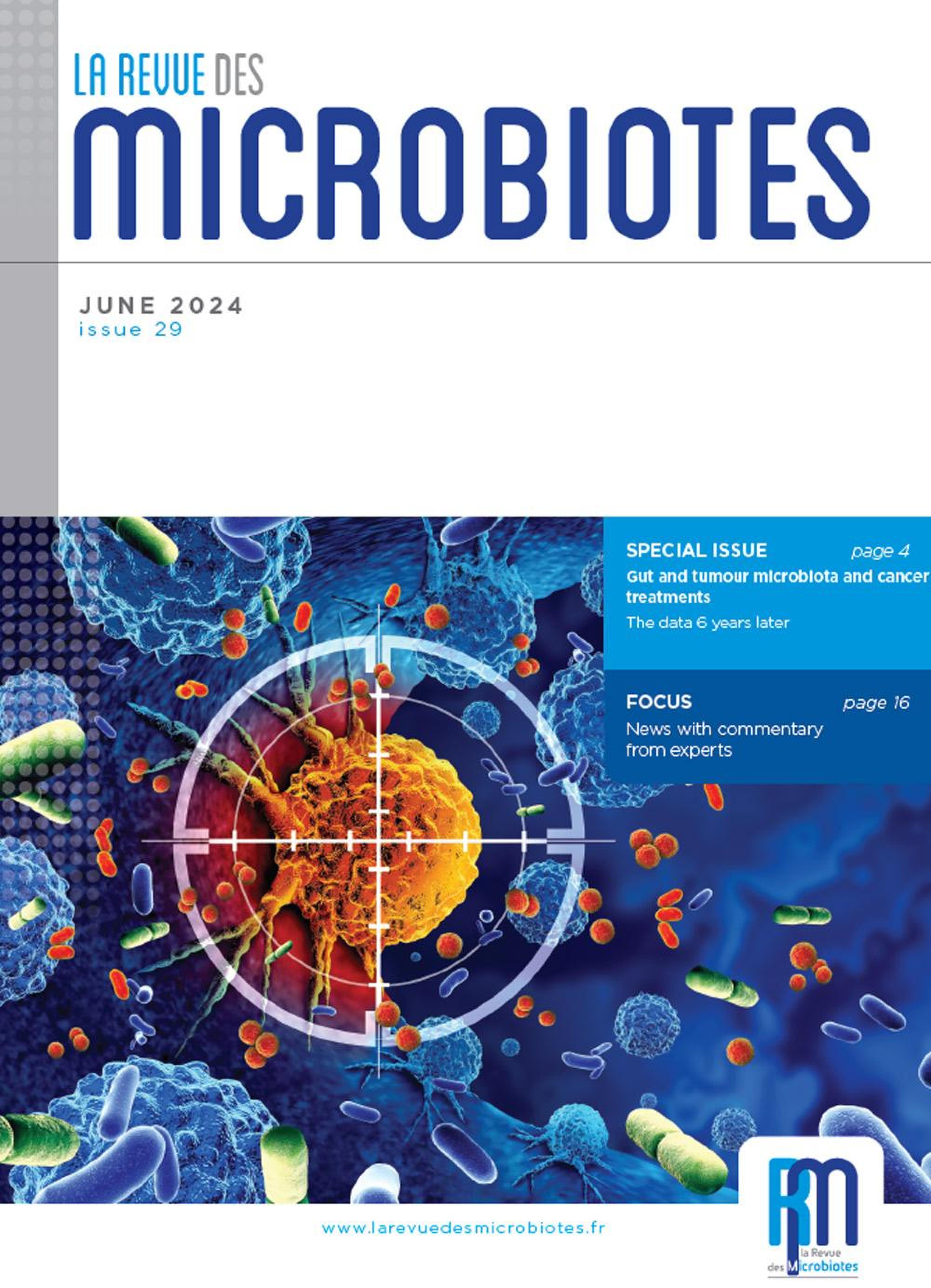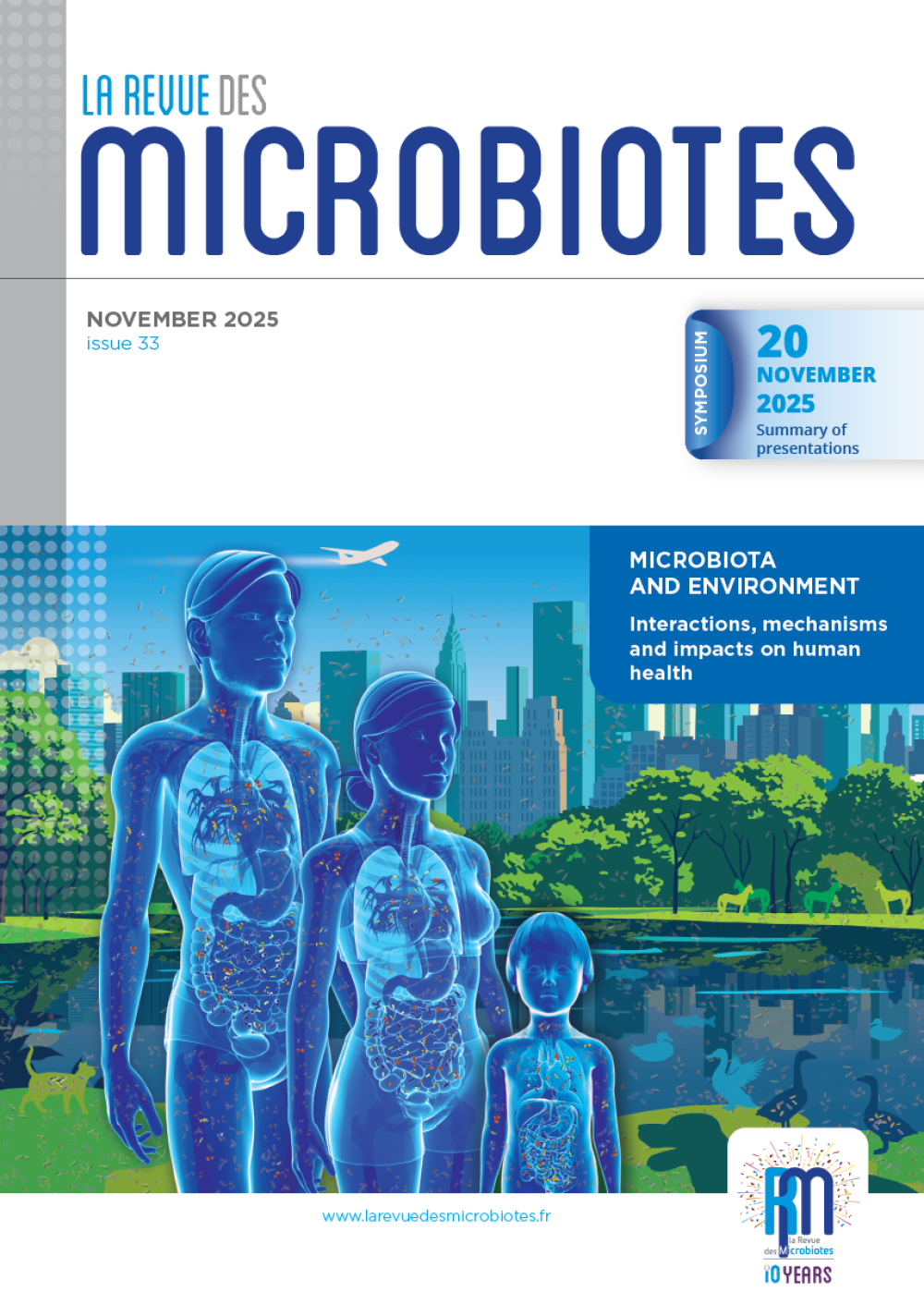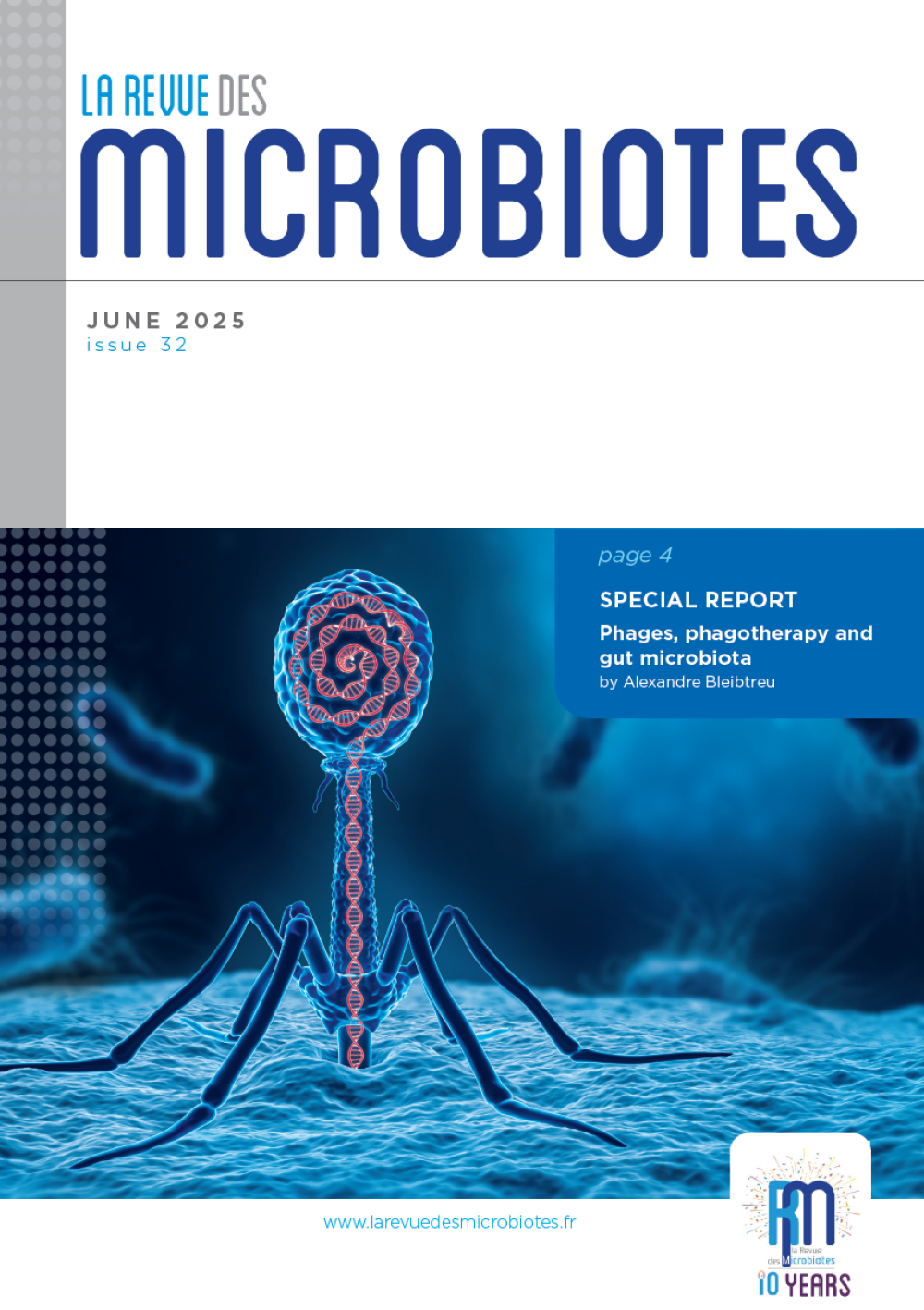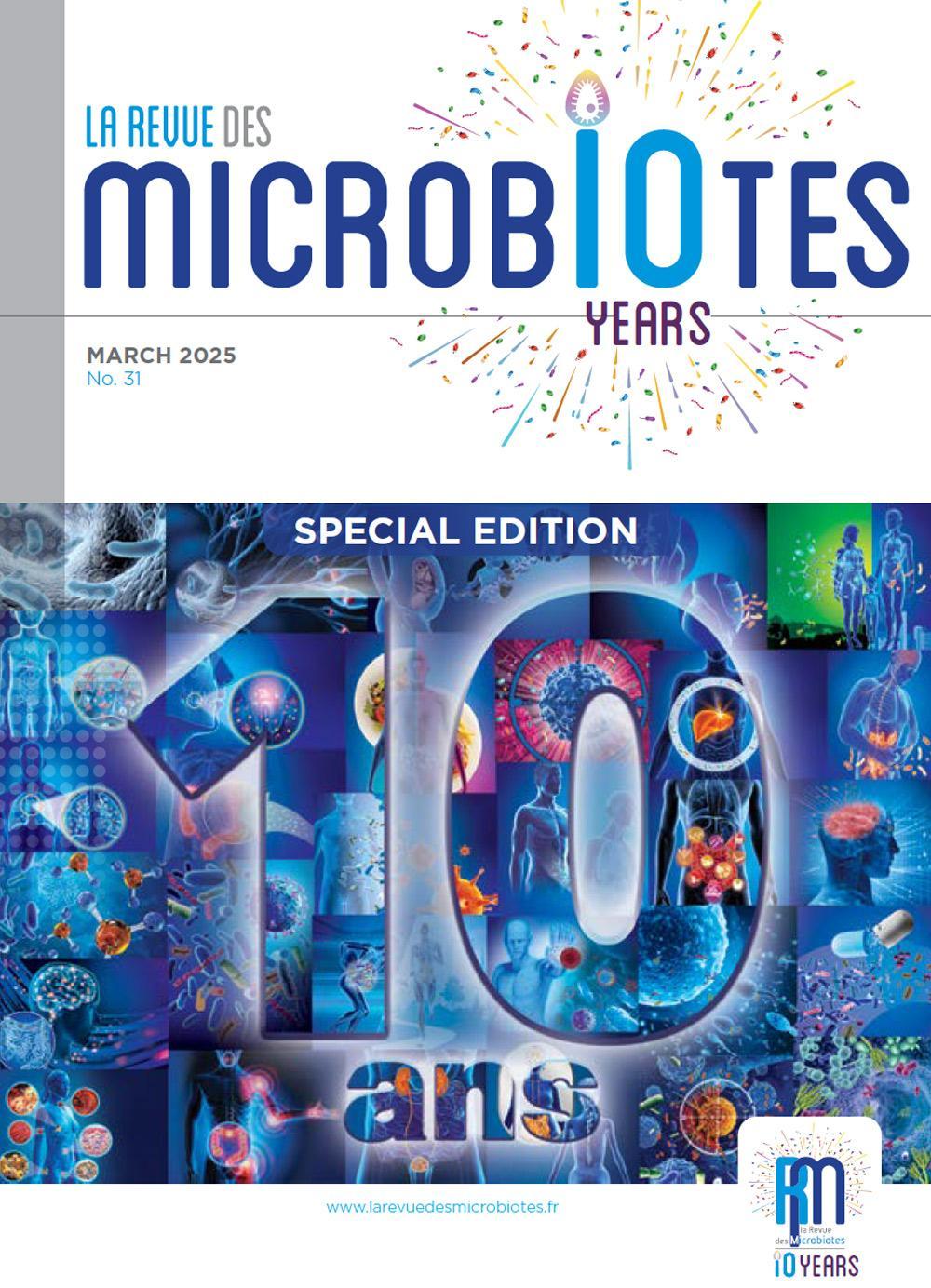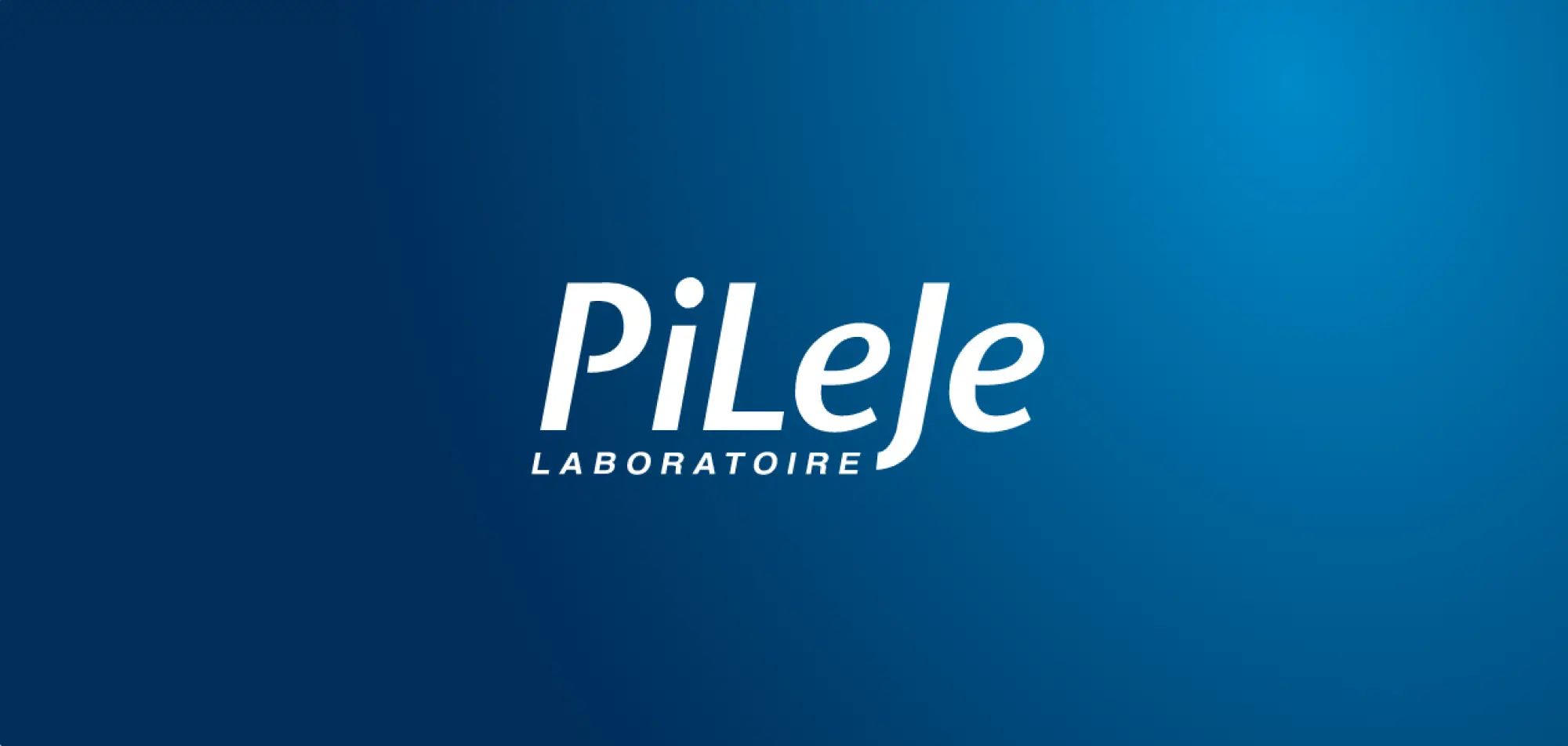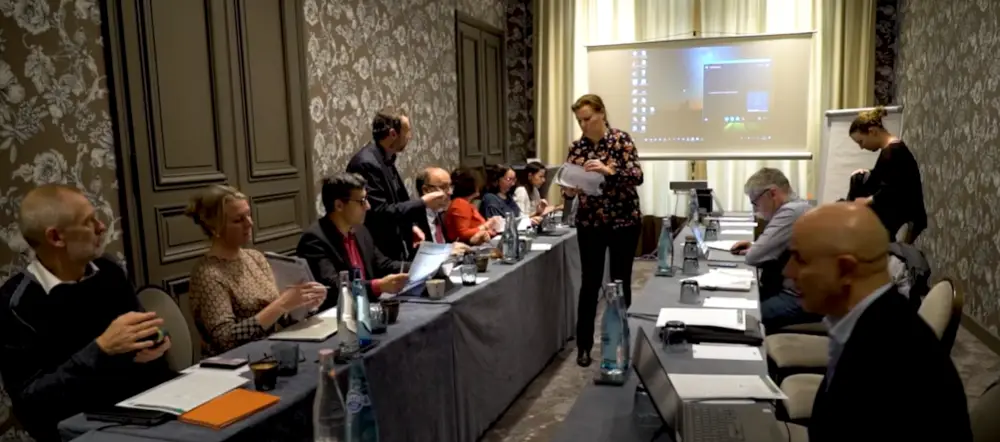Cancer cells manipulate our immune system to avoid being destroyed. There are many molecular mechanisms behind this manipulation. They are specific to each tumour and cancers of different origins may have mechanisms in common: lung, breast, heart, pancreas, etc. Some cancer cells are able to evade defence cells by activating switches on their surface that act as checkpoints. These checkpoints recognise healthy cells and prevent the defence system from being destroyed or overloaded. Several therapeutic
molecules have been developed to block these checkpoints. There have at times been spectacular results in terms of survival and tumour regression, although resistance or partial responses remain to be explained and overcome. It has therefore been shown that our microbiota play a role in the efficacy or resistance to cancer chemotherapy and to immunotherapy in particular. Some molecular pathways, through which the bacteria that make up our microbiota interact with cancer immunotherapy, have been identified. Since our issue "Gut Microbiota and Cancer Treatments" appeared in La Revue des Microbiotes no. 10 six years ago, a great deal of work has been carried out
in this field. This review describes the milestones that have marked these major discoveries and covers the therapeutic strategies, some of which are currently undergoing evaluation.
We hope you enjoy reading it.
Jacques Amar
Editor-in-chief of this issue

